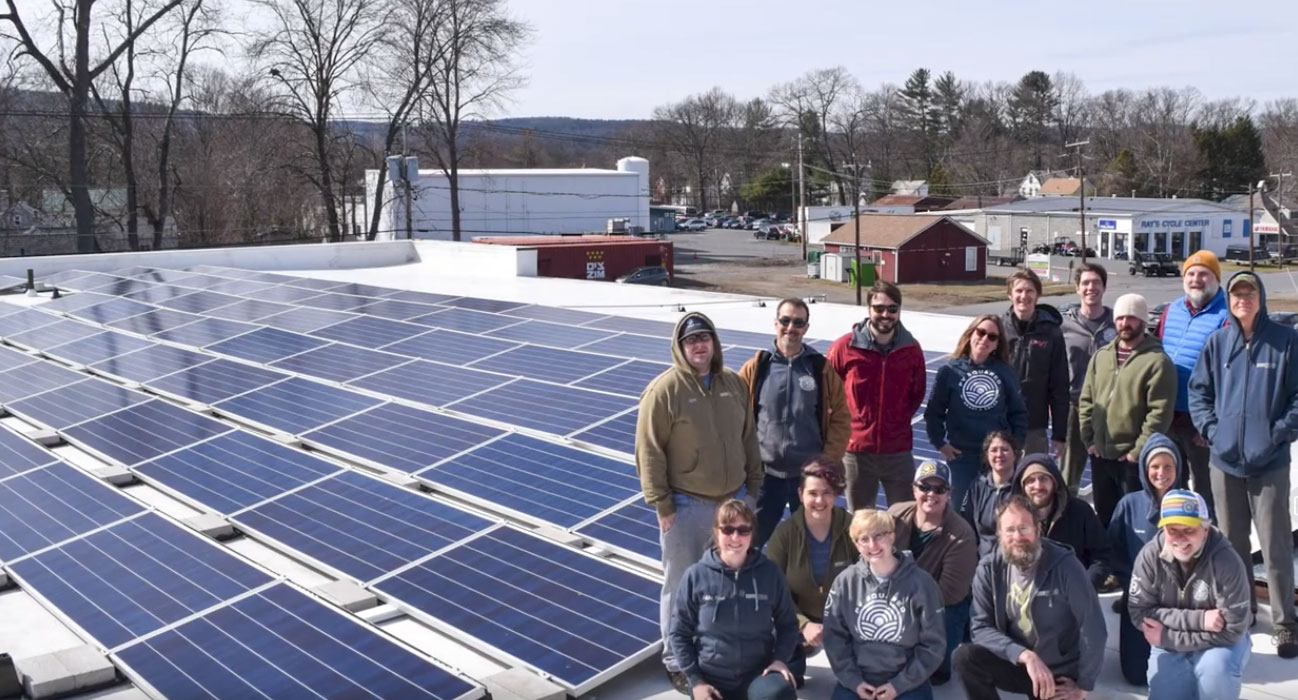As USDA Rural Development (RD) highlights National Cooperative Month, one worker owned co-op in Massachusetts stands out as a model for sustainability, collaboration, and local food system resiliency. The saying goes “it’s not easy being green.” But for Real Pickles in Greenfield, Massachusetts, the co-op wouldn’t have it any other way; they went green in 2011 with the addition of solar panels on its roof.
Real Pickles Cooperative of Massachusetts
RD assisted with the effort, providing $20,000 through the Rural Energy for America Program (REAP). The 18.06kWH PV Solar System on the roof of the business was installed by neighboring worker owned solar co-op, PV Squared, and replaced 100 percent of the pickle co-op’s energy needs at that time.
So how did this green, innovative co-op come about?
Two decades ago, Dan Rosenberg saw a need. Most pickles in the area were being produced with vinegar and preservatives. The old-fashioned pickle that Grandma used to make- naturally fermented with naturally occurring live cultures- was missing from local grocery store shelves. Determined to bring them back, Dan brought some veggies home from an organic vegetable farm where he worked and began making pickles the old-fashioned way.
He was soon joined by wife and business partner, Addie Rose Holland, and Real Pickles launched in 2001. They processed their pickles at a business incubator kitchen created by Franklin County Community Development Corporation, which provided a venue for making value-added foods with local farm ingredients. In 2009, Real Pickles moved into their own building and expanded their operations.
Today, the co-op sources its produce from eight locally owned farms and the future looks bright.
Addie said, “Real Pickles is rooted in this community and it has been supported by this community for the last 21 years. Becoming a worker owned cooperative helps to maintain jobs in our community and continues the cycle of local economic development.”
When asked for her favorite pickle pun, Addie said, “We’re kind of a big “dill.” We couldn’t agree more.



